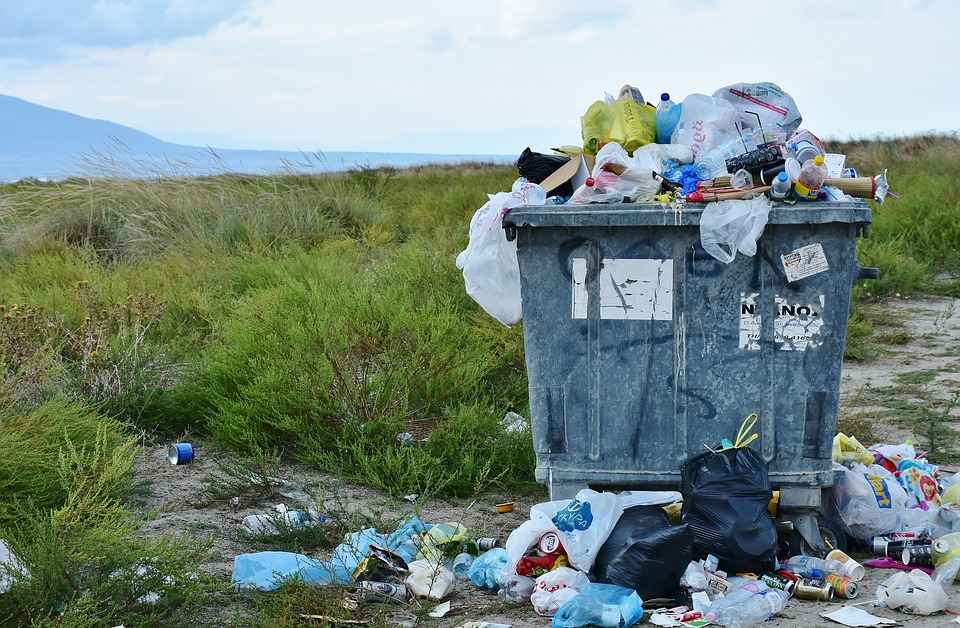
Are Reusable Bags Any Better For The Environment?
In July 2019, retailers in Western Australia, Queensland, and Victoria stopped providing their customers with single-use shopping bags, a practice ACT, South Australia, and Tasmania shops have been following for years. Now Perth shoppers without bags of their own have to buy reusable bags at checkout – and they were not happy about it at all. One disgruntled shopper took it so badly that they stole shopping carts to protest the ban.
This reaction caused Coles – one of the largest retailers in the country and hence largest contributors to plastic waste – to un-ban plastic bags almost immediately, frustrating activists and environmentalists across Australia. But was the plan, the ban, and the reaction ever warranted? Would banning plastic bags from shops had a noticeable impact?
And are reusable bags any better for the environment? These questions felt strangely absent from much of the news stories around this event, so today we’re diving into the plastic bag ban to see if we can find the real answers.
Is the Plastic Bag Ban a Good Idea?
The plastic bag ban is part of a worldwide trend with the commendable objective of reducing the amount of plastic waste that clogs up our landfills, waterways, oceans, and other spaces. On the surface, it makes perfect sense. Using one bag many times surely means less waste plastic than disposing of a bag after each purchase.
It’s an important matter as the volume of bags involved is staggering. Woolworths, for example, gives out over 3.2 billion single-use plastic bags to its customers each year. However, several recent studies have suggested that using reusable bags is not necessarily that much better than single-use items.
The practice could be even more harmful to the environment. Such reasoning seems counterintuitive, but the major factor is the number of times reusable bags are used. As these bags are stronger, they contain more plastic.
So they have the potential to be even more polluting than the flimsier single-use items. It’s also relevant to note that single-use bags are often reused. Sometimes they’re used again for shopping, but more commonly for various purposes around the home.
This means that so-called single-use bags may not be as bad as they appear. To understand the issue better, here’s a look into why we use so much plastic, how it can be a problem, and an overview of the pros and cons of single- and multiple-use bags.
How Do We Use So Much Plastic
Though its use is often decried nowadays, especially by environmentalists, it’s impossible to imagine life without plastic. Besides being a vital component of consumer and industrial items of all kinds from computers to cars to refrigerators, plastic is used for packaging, protection, and preservation. In short, it’s the ideal material for making bags and other containers.
Plastic has many selling points. It’s lightweight, waterproof, durable, hygienic, and cheap, which of course makes it perfect for use in shopping bags. Another big plus is that certain types of plastic can be recyclable, a practice that’s fortunately on the increase.
The Problems with Plastic
For all their benefits, plastic bags are a bane, littering our urban and marine spaces and causing health problems for both humans and animals. Burning plastic releases toxic chemicals into the air and pollutes the atmosphere. Plastic bag also blocks drains and causes flooding and problems with stagnant water.
Perhaps most tellingly in a coastal environment such as the Perth area, they mar our beaches and harm local marine creatures. The main issue with plastic is that it’s not biodegradable. In other words, unlike organic materials, it doesn’t break down over time.
On the plus side, this makes for excellent durability. But it also means that when dumped, plastic stays around for a very long time. Even when a plastic bag breaks up into smaller fragments, it just makes it more easily absorbed by marine animals with insidious effects.
Along with fish, crustaceans, and other aquatic fauna, plastic is also a menace to species such as sea turtles and birds such as the albatross. Even if you never go near a landfill, you can’t miss the environmental impact of plastic bags, especially in a coastal environment such as Perth. Surveys have shown that up to 75% of the trash found on Australian beaches comprises plastic items, and it’s estimated that worldwide, 100 million tons of plastic pollute the oceans.
Single-Use Vs Multiple-Uses
At first glance, it seems obvious that using a bag many times will result in fewer bags needing to be disposed of. To understand why this may not be the case, it’s important to remember that “single-use” is a convenient term to distinguish free bags from thicker, tougher items that are intended for multiple uses. In practice, “single-use” shopping bags are often used multiple times.
They can be used for shopping again, for lunch bags or general containers, and most commonly as kitchen catchers to hold household rubbish for disposal. For this last reason, one common result of banning single-use bags is an increase in the use of plastic bin liners, which results in the same volume of plastic being dumped in landfills as before. Another issue is that consumers tend to use reusable bags as “gear bags” to stash their rubbish.
While most landfills now comprise a load of single-use bags, in the future this may well be the heavier reusable bags, which are worse for the environment. In that case, it’s just exchanging one type of bag for another, thicker one. Another major issue is that the thicker reusable bags are made of light-density polyethylene (LDPE).
They’re also commonly known as “green bags,” but in practice are only deserving of this moniker if they’re used many, many times. Otherwise, owing to their thickness, they could have an even worse effect on the environment than their disposable counterparts. For this reason, a slew of studies has determined that these bags need to be reused many times.
Numbers about the optimal recommended usage vary. But some researchers have suggested that unless reusable bags are used up to 80 times, their advantages over disposable bags are minimal. Meanwhile, most single-use bags are made of high-density polyethylene (HDPE).
These are lightweight and can be compressed to take up a smaller footprint in landfills. In this regard, they’re more eco-friendly than reusable bags. In essence, for the reusable bag policy to work, consumers need to make their use habitual, which is best done through an education program.
Some enterprising retailers offer handy foldable and rollable bags that can be attached to a key chain, for example. Otherwise, shoppers tend to forget to pack their reusable bags when they head out shopping. The result is that they’ll simply be paying a small sum for a bag that’s even more of an environmental hazard.
If they then use that bag to pack their household waste, it pollutes landfills even more. On a positive note, many retailers who save money from not having to provide free plastic bags donate the profits gained from selling reusable bags to various environmental causes such as Clean Up Australia. Hopefully, this can help get the word out about the importance of multiple reusable bag use.
Another key way in which we can help reduce the amount of plastic waste is through the use of recycling. By using skip bins to collect household and business waste, enterprising firms such as Coastal Waste Management can effectively sort various types of waste including plastics into items that can be recycled and those which should be sent to the landfill. This way the maximum value can be extracted from household waste while minimising the amount of rubbish that needs to be disposed of.
Recycling and Environmental Impact
Through the savvy and comprehensive use of the skip bin, Perth and its suburbs can develop a cost-effective and workable waste management system. As a rough guide, reusable bags should be used at least 20 times. This will result in an environmental footprint equal to two uses of a single-use bag.
Along with educating consumers about the need to use their reusable bags as much as possible, the path to effective home waste management also depends on recycling. Ultimately, it’s what happens to waste that matters – specifically, whether it ends up in landfills (or worse, the ocean) or it’s recycled and used again. Truly effective waste management involves recycling and extracting the maximum benefit from waste such as plastics while keeping the environment clean for us to enjoy.
At Coastal Waste Management we’re committed to the Zero Waste philosophy that eliminates waste and maximises recycling landfill waste including reprocessing plastic waste items into useful products. As part of our operations, we provide homeowners and business owners can use to collect their rubbish before it’s processed in our Waste Transfer Station. Here the rubbish is sorted, and as much as possible is recycled to recapture its value and minimise its impact on the environment.
The result is reduced air and water pollution along with the maximum reprocessing of plastics and other important materials. Perth and its suburbs, with its sublime coastline and varied flora and fauna, are a gift from nature that needs to be preserved and nurtured. By encouraging consumers to make the most efficient use of shopping bags and rigorous recycling we can ensure our environment remains safe, green, and pleasant for a long time to come.

